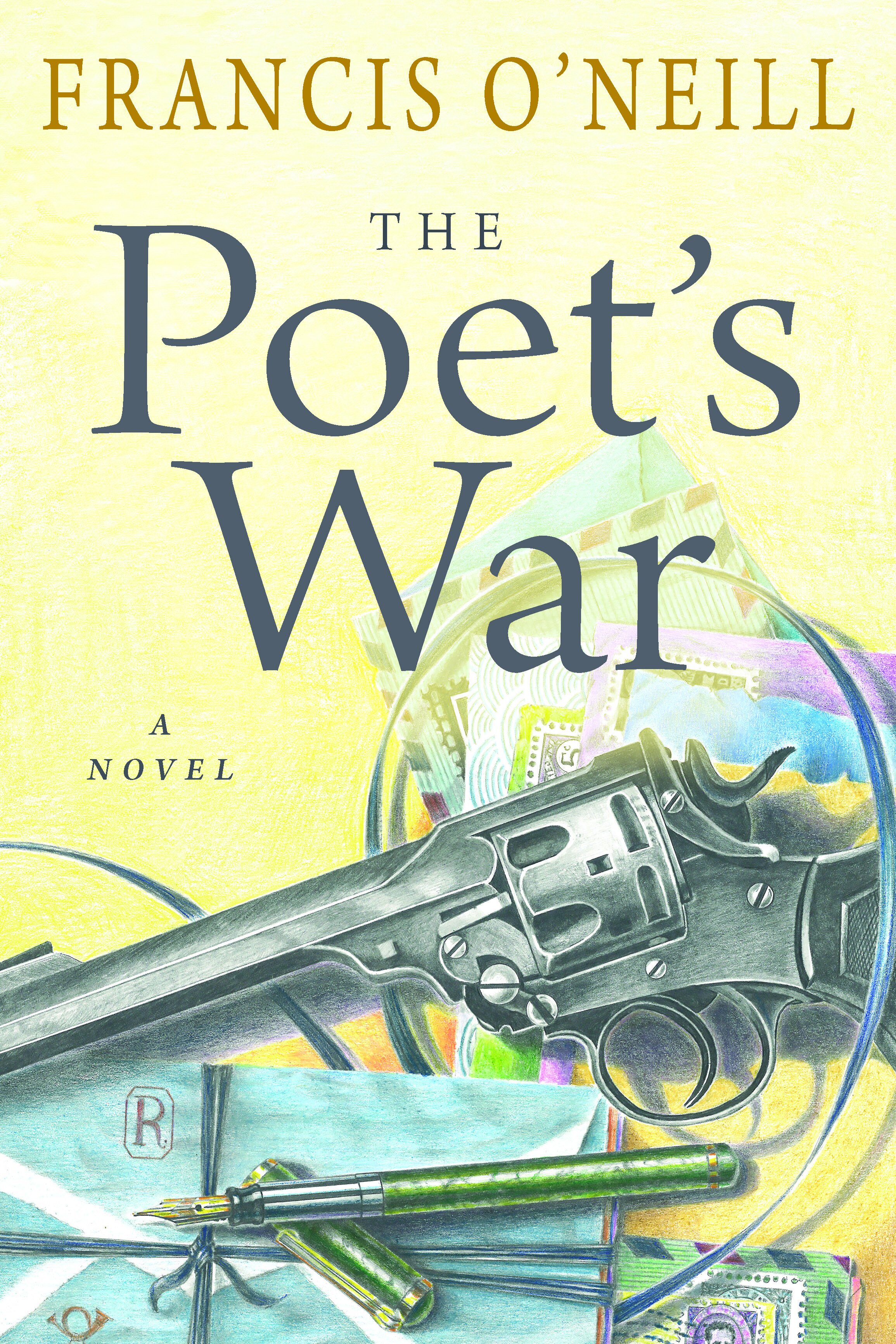The Poet's War
HELLO READERS :)
I’m excited to spotlight the forthcoming title The Poet’s War and feature Q&A with the author Francis O’Neill here on Through Novel Time & Distance. If you are a fan of sweeping historical narratives, then this book might be for you!
Enjoy!
The Poet’s War
By Francis O’Neill
ISBN: 9783951979601
Release Date: August 25, 2020
Publisher: Ingram Spark
Genre: Literary Fiction
Pages: 430
Format: Paperback, ebook
JOIN A HEROIC WARRIOR POET ON A JOURNEY THROUGH LOVE AND WAR IN THE NEXT EPIC NOVEL YOU WON’T BE ABLE TO PUT DOWN “Brilliantly written, with superb characterizations” — Praise for Francis O’Neill in The New York Times Book Review
From the mold of the expansive family drama on the European stage comes a story of manners and morals. After a childhood in Italy with his mother and her upper- class family, Alistair Stears finds his world changed by the fighting in that country during WWI. He goes on to an education at West Point, and eventually leaves a posting in the Philippines for the more genteel pleasures of literary Paris. His experiences thus far in life inspire him to writing verse and he finds himself a poet of some renown. His epic war poem is not his last entanglement with battle and espionage. The Poet’s War by Francis O’Neill [August 2020] sets another stage for WWII and the fall of a certain way of living and thinking.
After all this observation of the German-Italian military and a marriage to Ottavia, the sister of his best friend, Alistair watches as Mussolini’s rule slides into Hitler’s influence. Alistair’s convictions against fascism and the Nazis lead to a dangerous stint as a double agent and the peril of all he holds dear.
“This book celebrates the last holding on of an oligarchism of knightly pedigree with a modest popular role. It was too fragile to last,” O’Neill says. “Alistair’s stepfather The Colonel reminisces about his grandfather’s words as the first steam train rolled into Turin: ‘That machine will be the downfall of the gentleman.’ Seventy years later, the Colonel agrees that he was probably right.”
For fans of sweeping historical narratives and complex familial drama, The Poet’s War is a return to the great novelistic style of the 19th and early 20th Centuries. Francis O’Neill is the author of the Historical Thrillers Agents of Sympathy, The Secret Country, and Roman Circus. His previous work has been published by Simon and Schuster, Crown, and Putnam. Born in South Carolina and educated in Europe, he received his BA in Modern History at Oxford’s Exeter College. He currently resides in Salzburg, Austria.
The Poet’s War is coming in August 2020.
REVIEW COPIES OF THE POET’s WAR AVAILABLE UPON REQUEST
FROM SMITH PUBLICITY, INC.
Question: How, if at all, did writing this book differ from writing your earlier works in the 80s and 90s?
Francis O’Neill: My 'style,’ a word I rather shy from, is never and always the same. Reading my first real book (Agents of Sympathy) it seems written by anyone but me; if you ask me to say exactly where the difference lies, I don't think I could. My characters, now and ever, float up out of deep pools, and I am always startled to meet them.
Question: Who do you consider to be the great "warrior poets" whom your protagonist Alistair may or may not be modelled after?
Francis O’Neill: True 'great warrior poets' are very scarce, both being rather full-time jobs. Alistair (and I) would insist that the saint, the warrior, and the artist meet as points of a triangle, by which they are joined--but they are not the same. Castiglione, Alistair's hero and the great essayist of the courtier-warrior would agree, though he did not quite say it. If you mean 'poets of war,' then, 1,2,3: Homer, Virgil, the poet of Le Geste de Roland.
Question: What can a return to the era of grace and civility teach us in modern times?
Francis O’Neill: Grace has nothing to do with an era, though more understood in certain past eras than our own. What is it, and what is it not? Among those I have actually known the two most certainly endowed with grace have been HH Prince Geza von Hapsburg, and my grandmother's late head parlour maid. How seen? A certain lightness. A capacity to make everybody nearby somehow happy by doing nothing that anybody can see. Attention. Voice.
In the Revolution, by the guillotine (it was abominably run, as you might expect), a
nobleman and a lady he knew well, both condemned and filthy from the dungeon, were, as you might say, 'next to go.' He said, "Madame, I fear that this time I must pass in front of you." She replied, "Mon ami, surely you will not take my lady's prerogative from me at the very end." Magnificent, because grace is never so much grace as in the face of terror.
Grace is not a time. It is not crinolines. It is light. It is holding yourself up from the floor. It is preferring loyalty to advantage.
Question: Do you have a personal philosophy?
Francis O’Neill: Believe in God. Have good manners. Never mail a letter the day you write it. Don’t keep women waiting. Don’t eat chocolate with Sauternes or a cigar. Never be rude unintentionally. That’ll about do it.
***
Francis O’Neill is the author of the Historical Thrillers Agents of Sympathy, The Secret Country, and Roman Circus. His previous work has been published by Simon and Schuster, Crown, and Putnam. Born in South Carolina and educated in Europe, he received his BA in Modern History at Oxford’s Exeter College. He currently resides in Salzburg, Austria. The
Poet’s War is coming in August 2020.


